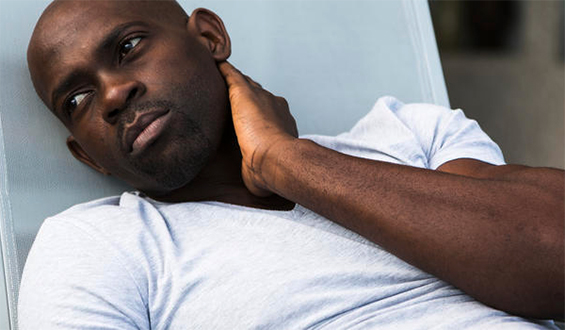 (Photo: Caroline Maryan, CBS)
(Photo: Caroline Maryan, CBS)
According to a recently released study, some white medical students hold certain beliefs and racial biases that could affect how they assess pain with black patients.
Published in the Proceedings of the National Academy of Sciences journal, the study adds to the evidence piling up that suggests black patients are treated differently than white patients when it comes to pain management. Lead author Kelly Hoffman noted that researchers performed the study in an effort to determine the factors that come into play in the difference in treatment for various patients.
“For a long time we’ve known there are really large racial disparities in health and health care, in pain management this is really [striking],” Hoffman, a psychology doctoral candidate at the University of Virginia, told ABC News.
Participants included 222 white medical students from the University of Virginia. They were asked by researchers to read two made-up medical cases about a black patient and a white patient. Upon completion, they were asked to rate their perceived pain on a scale of one to ten. The medical students were then asked to offer their opinions on a number of statements made concerning biological differences of each race.
Many of the “facts” offered in these statements were actually false, such as “Blacks’ nerve endings are less sensitive than whites’,” “Blacks’ skin is thicker than whites’,” and “Blacks have stronger immune systems than whites.”
Of the 15 statements, only four were true. The true statements included such facts as black patients have a higher risk for heart disease and stroke, have denser bones than white patients, and are less likely to contract spinal cord diseases, reports Gillian Mohney for ABC News.
Results of the study discovered 50% of participants believed at least one of the false statements to be “possibly, probably, or definitely true.”
If a medical student believed false information, they were found to be more likely to show a racial bias when assessing and recommending pain treatment to their white and black patients.
“Participants who endorsed more false beliefs about biological differences between blacks and whites showed a racial bias in the accuracy of their treatment recommendations,” according to the study’s findings.
Researchers also determined that those students who did not believe any of the false statements also did not show a bias in how their patients were treated.
Participants included white medical students in order to determine if a bias existed along racial lines and if so, the possibility that white doctors could not accurately assess the pain level of black patients. While the same study was performed with 106 non-white medical students, researchers were unable to find similar correlations as were found with the white participants. As such, these findings were not included in the final study.
For the second part of the study, 92 people were asked to participate in the same exercise as the one given to the medical students. That study found that 73% of people believed at least one of the false facts. In fact, the more false information a person believed, the more likely they were to estimate a black person’s pain on a lesser scale than they were a white person’s pain.




